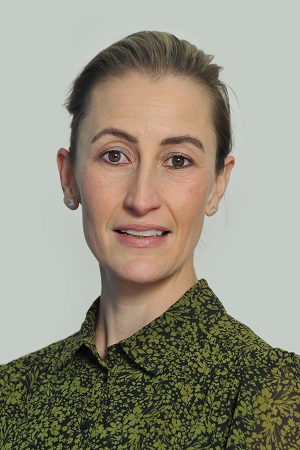When South Africa was declared a democratic state in 1994, Prof Shan Simmonds was only 11 years old. Although she could recognise things changing around her, she could not understand the deeper discourses that infused these changes.
In her experience, a handful of black learners entered what had, up until that point, been a whites-only farm community school. The so-called handful soon grew in numbers and, contrary to what one might imagine, especially considering that the teaching staff remained unchanged, Prof Simmonds experienced no sense of racial divide or discrimination.
The spheres of school life had suddenly become diverse and different, but by no means hostile. Things were perceived largely the same way throughout high school, but things changed drastically at university.
Prof Simmonds’ formerly white university transitioned to its first black vice-chancellor after a history of 25 different white vice-chancellors and a 70% white student body. The divide was explicit. Older generations came across as activists, bearing the scars of years of discrimination, while the younger generation seemed somewhat displaced, not quite knowing where they fit in.
Prof Simmonds herself felt sidelined when trying to understand the deeper stories of her peers. She often felt that her black peers believed that they would be betraying their ancestors if they united with whites. Others felt guilty for being afforded opportunities while their fellows were left with little hope and were struggling to survive. Without exception, all white people were seen as privileged. Her black peers would not let her in, and her white peers were resistant to the hurdles of race. At that point, academia created a platform for Prof Simmonds to ask questions and learn the discourse of human rights.
One means of transforming South Africa’s discriminatory past has been to anchor it in human rights, inclusivity and social justice. Education has been, and remains, arguably the most powerful tool for transforming society. In the light of this, South Africa has taken a unique approach to designing the curriculum and infusing it with a culture of human rights.
The Department of Education proclaimed that it celebrated human rights in the curriculum, but admitted that these rights are often misunderstood as a concept. Soon after the implementation of Curriculum 2005, research showed that a large percentage of teachers believed that honouring human rights as central to their teaching practices and content led to problems in the classroom. The then Minister of Education, Prof Kader Asmal, argued that human rights values could not simply be asserted through education, due to its moral fibre. He felt that these values rather needed to be debated, negotiated, synthesised, modified and earned as a process, instead of as an end product.
Prof Simmonds’ research depicts human rights as often being instrumentalist and judicial. According to Prof Simmonds, human rights are used to teach the difference between right and wrong, while instilling in the youth what they are entitled to and the responsibilities that accompany these entitlements. The reality is that human rights are perceived differently by different age groups. Primary school learners experience them as abstract and removed from their everyday lives, due to the inability of curriculum content and teachers to deal with ethical contradictions in the classroom.
The curriculum prioritises human rights injustices and discrimination for high school learners by emphasising inequalities that manifest in society, such as gender-based violence, racial inequality, xenophobia and political dishonesty. Among university students, human rights can create binaries that reinforce division among some groups of society along racial, gender and class lines. In the light of all the above, Prof Simmonds was compelled to rethink how human rights education features in thought and in practice, with and within the curriculum.

Prof Shan Simmonds
